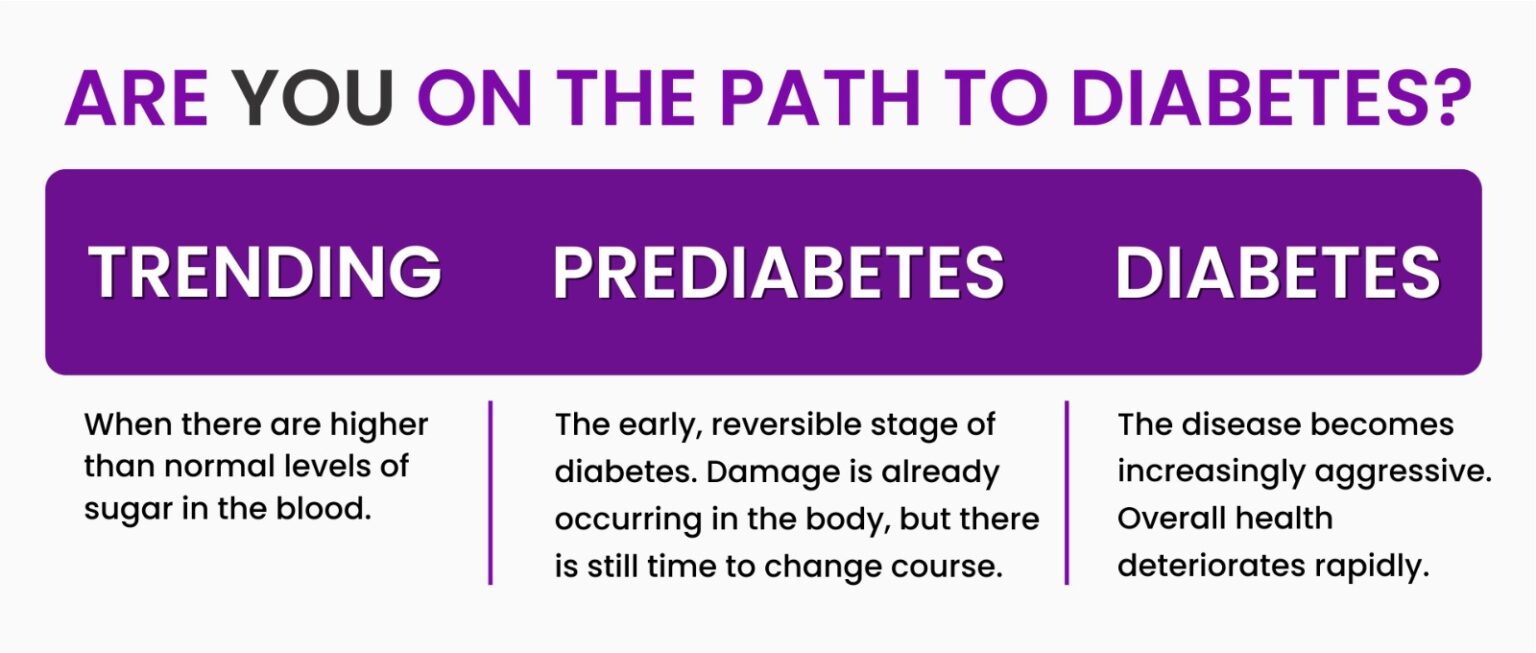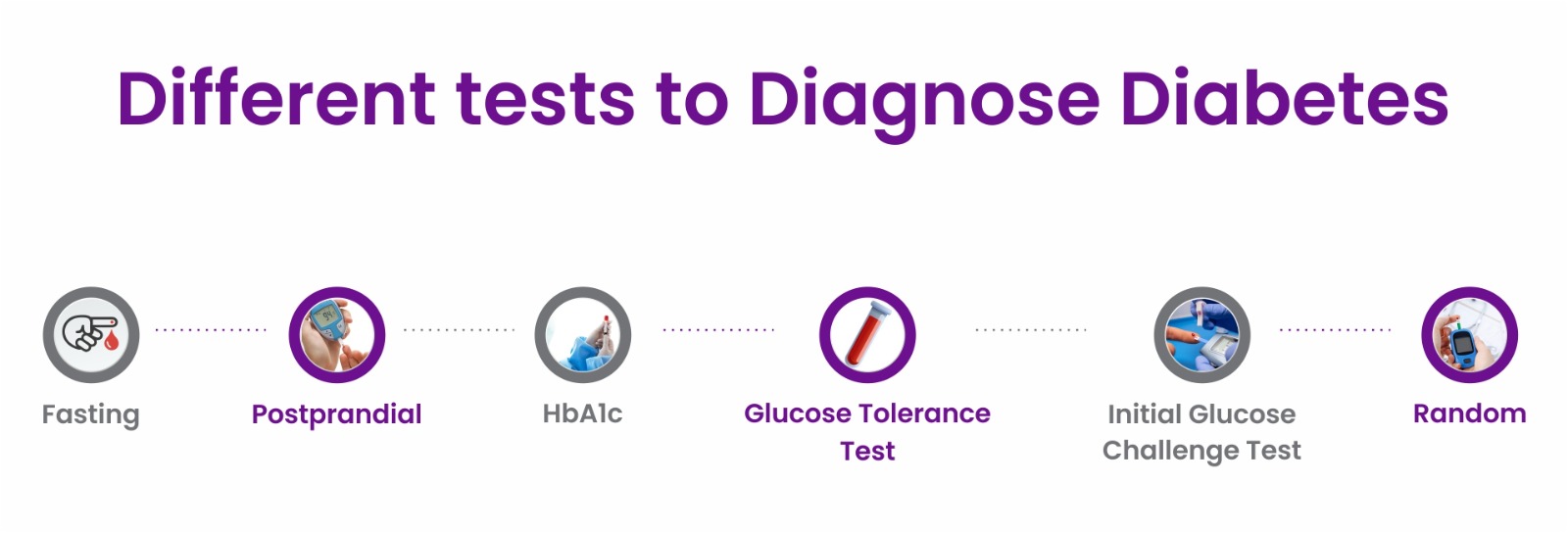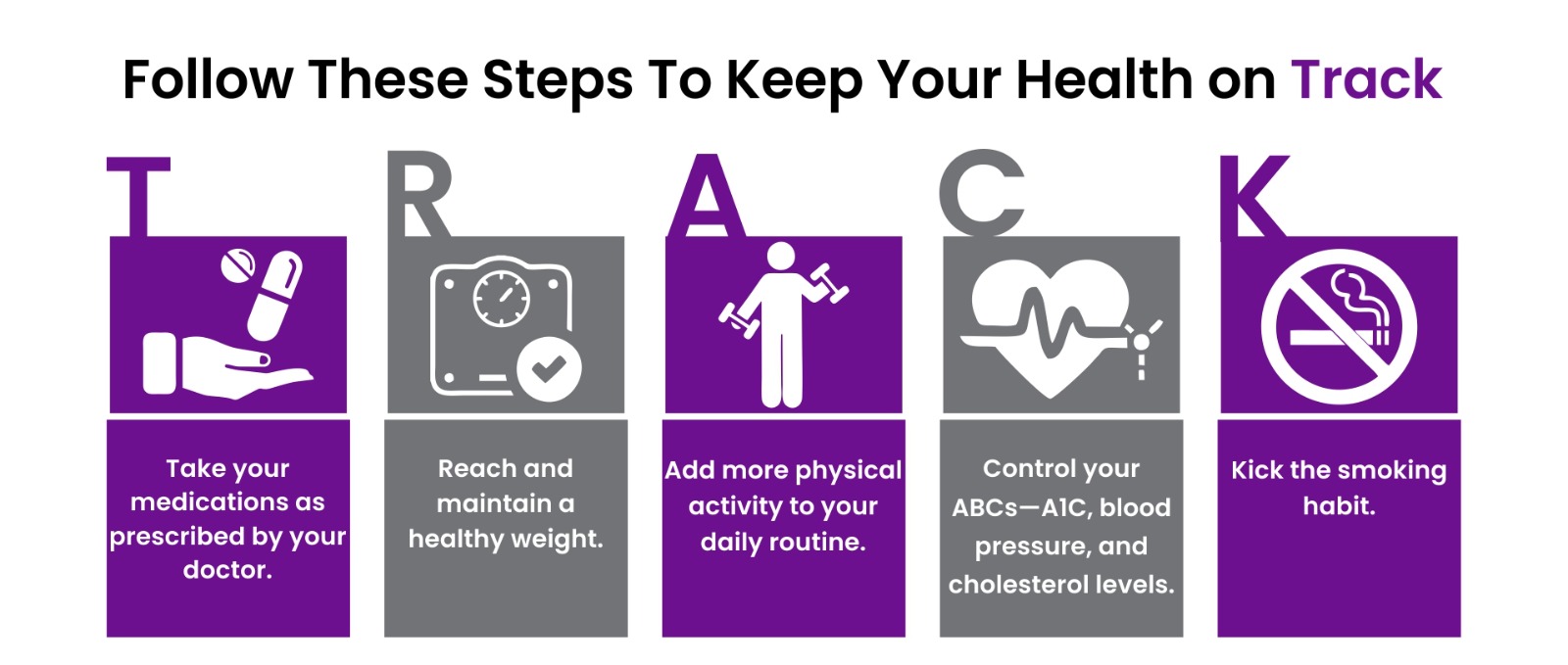
Understanding Diabetes – Back to Basics!
According to the 2021 ICMR report, an estimated 101 million people across India have diabetes. Considering the alarming statistics, it is important to understand this disease to its core to prevent or manage it effectively. Therefore, in this blog, we have explained what exactly diabetes is, how it develops, its different types and how one can manage them. Read on to learn!
What is Diabetes?
Diabetes, also known as Diabetes Mellitus, is a lifelong chronic, metabolic disease caused due to elevated levels of blood sugar or glucose. Over time, this condition leads to serious damage to various organs in the body such as the heart, blood vessels, eyes, brain, kidneys, and nerves. Not only this, but over time, this disease can also lead to sudden death from conditions like heart attacks, strokes, or kidney failure.
How does it happen?
When the pancreas in your body fails to produce enough insulin or when the insulin produced cannot be effectively utilised by your body, it leads to diabetes.
Insulin is a hormone that helps to regulate the body’s blood sugar levels. When insulin does not respond properly, excess glucose accumulates in the bloodstream instead of being used as an energy source. This condition is called insulin resistance and results in a significant increase in blood sugar or glucose levels.
Your body gets glucose from foods and beverages rich in carbohydrates such as grains, vegetables, and dairy products. When you consume carbohydrates, your body further breaks them down into glucose, which is then absorbed in the bloodstream and allows it to serve as an energy source for all the cells in your body.
If the levels of blood sugar or glucose in the bloodstream remain high for a prolonged duration, it causes significant damage to various body organs including the heart, kidneys, eyes, etc.. If not treated and managed properly, it can even be life-threatening.
Types of Diabetes
There are mainly two types of diabetes and these include Type 1 and Type 2 diabetes. Besides these, there are several other types of diabetes such as Gestational Diabetes, Maturity Onset Diabetes of the Young (MODY), Neonatal Diabetes and Latent Autoimmune Diabetes in Adults (LADA) amongst others. However, in this blog, we have covered the two most common forms of diabetes i.e Type 1 and Type 2.
Type 1 Diabetes
Type 1 diabetes, also called insulin-dependent diabetes, mainly develops when your body’s immune system attacks the insulin-producing cells in your pancreas and destroys them. Once β-cells (Beta Cells) are destroyed, there is only little or no insulin produced, due to which glucose stays in the blood, causing severe damage to your body’s organ systems in the long run.
Since it was majorly diagnosed in children and young adults, it was previously called juvenile diabetes. However, some recent studies reveal that this condition can affect people at any age, especially the ones who have a family history of type 1 diabetes.
Given that this type of diabetes is irreversible, people who have been diagnosed need to take insulin and other medications throughout their lives to compensate for the insulin their bodies do not produce.
Along with this, they need to make certain lifestyle changes like eating a balanced diet and exercising regularly to keep their blood sugar levels within acceptable ranges.
Type 2 Diabetes
Type 2 diabetes refers to a condition, characterised by elevated glucose levels in the blood due to insulin resistance. In this condition, the cells in your body do not respond well to insulin. Over time, the pancreas struggles to produce enough insulin to overcome the resistance, leading to a spike in glucose levels in the blood.

This condition has numerous risk factors associated with it and these include:
Obesity
It is known to be the single most important underlying cause of type 2 diabetes. The more weight you have, the more resistance your body has to insulin. Therefore, if you find yourself overweight or obese, it is best to get your complete health screening done to identify potential health issues at the earliest. In addition, consider making changes in your lifestyle in order to achieve a healthy body weight. A few steps that you can take towards losing weight include eating a healthy, low-fat diet and exercising regularly for at least 150 minutes per week.
Age
The risk of developing type 2 potentially increases with age, especially after you turn 45. While you cannot control your age, you can work on maintaining a healthy lifestyle that can significantly reduce your risk of developing this condition.
Family history
The history of diabetes running in your family puts you at a higher risk of developing type 2 diabetes. If your mother, father or sibling has diabetes, it is best to consult a healthcare professional at the earliest and take timely actions to safeguard yourself from developing diabetes.
Polycystic ovary syndrome (PCOS)
PCOS is a health condition that affects women and is caused due to an imbalance in hormone levels, resulting in the formation of cysts on the ovaries. Women who have PCOS are more likely to develop type 2 diabetes in the near future.
Tobacco and alcohol consumption
Smoking and alcohol abuse are also the two most common factors that may increase your chances of developing type 2 diabetes. Thus, if you have a habit of smoking and consuming alcohol, it is recommended that you bid farewell to those cigarette butts and ditch the booze to lead a healthier, diabetes-free life.
‘Knowledge is power’, especially when it comes to your health. While there is no cure for type 1 diabetes and one cannot completely get rid of it, type 2 diabetes can be prevented or reversed to a point where no medications are required. All you need to do is keep an eye on your blood sugar levels regularly. Furthermore, fuel your body with good nutrition and a healthy diet and follow a regular exercise routine to secure a healthier, happier, sugar-free life.
For a quick, hassle-free blood sugar test, visit the hPod nearest to you.
Quick Links
Locations
- India Health Link
- IndiQube Orion, 24th Main Rd, Sector 1, HSR Layout, Bengaluru, Karnataka - 560102.
- +91 80474 85152
- info@indiahealthlink.com

